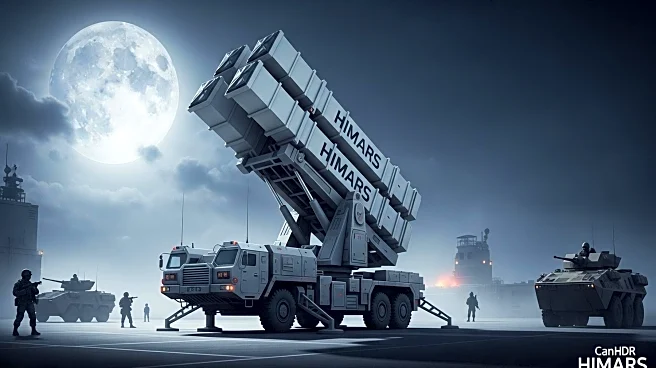What's Happening?
The United States has approved a $705 million sale of High Mobility Artillery Rocket Systems (HIMARS) to Australia, a key ally in the Pacific region. This decision comes amid increasing tensions between China and Western nations. The U.S. State Department's approval follows Australia's request to purchase 48 HIMARS systems, which are known for their precision and versatility, as demonstrated in Ukraine's defense against Russian forces. The deal includes resupply vehicles, trailers, practice rocket pods, intercom systems, spare parts, and other equipment. Australia, part of the AUKUS security pact with the U.S. and U.K., has been actively involved in regional defense planning and has voiced concerns over China's military activities, particularly around Taiwan and the South China Sea.
Why It's Important?
The sale of HIMARS to Australia underscores the strategic importance of the U.S.-Australia alliance in countering China's military influence in the Asia-Pacific region. As part of Washington's island chain strategy, Australia plays a crucial role in containing potential threats from China. The acquisition of HIMARS enhances Australia's defense capabilities, allowing it to contribute more effectively to regional security and stability. This move also reflects the U.S.'s commitment to supporting its allies in maintaining a strong self-defense capability, which is vital for peace and economic stability in the Western Pacific. The deal further solidifies Australia's position as a central partner in U.S. defense planning.
What's Next?
Australia's acquisition of HIMARS is expected to bolster its military capabilities significantly, with the systems providing a credible strike capability over long distances. The deal may lead to increased military cooperation between the U.S. and Australia, including joint exercises and strategic planning. As tensions with China continue, Australia may face diplomatic challenges, particularly concerning its stance on freedom of navigation in the Taiwan Strait and the South China Sea. The U.S. and Australia are likely to continue monitoring China's military activities closely, with potential adjustments to their defense strategies in response to any developments.
Beyond the Headlines
The HIMARS sale to Australia highlights broader geopolitical dynamics in the Asia-Pacific region, where military alliances and defense capabilities are increasingly critical. The deal may influence other regional players to strengthen their military ties with the U.S. or seek similar defense systems to counterbalance China's growing influence. Additionally, the sale raises questions about the long-term implications for regional security and the potential for an arms race in the Pacific. The ethical considerations of military sales and their impact on international relations are also worth exploring, as nations navigate complex geopolitical landscapes.











